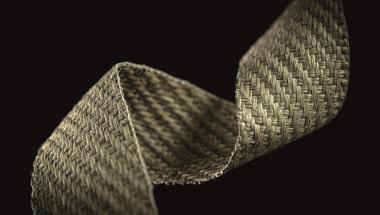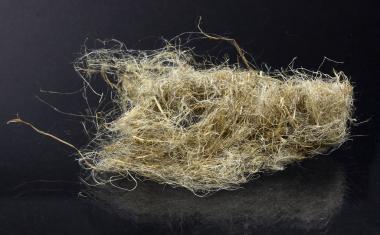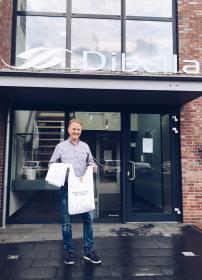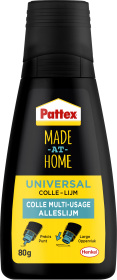Flax for Composites: Woven tapes made of natural fibres by vombaur
Flax has accompanied people for thousands of years, in linen fabrics, in ropes, as insulation material. And until the present day. With woven tapes made of flax, vombaur makes the functional and ecological advantages of natural fibres available for lightweight design.
Lightweight and firm
Flax fibres are particularly rigid and tear-proof. Textiles made of the natural material therefore give natural fibre reinforced plastic (NFP) special stability. Additionally, flax has a low density. The components thus combine high rigidity and strength with low weight. Another functional plus: natural fibre reinforced plastics are less prone to splintering than glass fibre reinforced plastics.
Sustainable material
The cultivation of flax binds CO2 and the production of NFP generates 33 percent lower CO2 emissions than conventional fibre reinforced plastics. The energy consumption is 40 percent lower. This reduces production costs and improves the material's CO2 footprint. Punch-packing arguments for natural fibre tapes – like flax tape by vombaur – in lightweight design applications.
Circular Economy
Circular Economy – this also works in lightweight design. The number of recycling cycles without loss of quality is higher for natural fibre reinforced plastics than for glass or carbon fibre reinforced plastics: the thermoplastic matrix of the composite can be melted and recycled after a product life cycle. The natural fibres can "live on" in other products – injection moulded products for example.
Versatile applications
"Composites from our flax tapes are used to reinforce high-tech skis as well as for extruding state-of-the-art window sections – the applications are countless," explains Tomislav Josipovic, Sales Manager with vombaur. "As a development partner, we support applications for the automotive, wind energy, construction, sports and many other industries with our composite textiles."



























